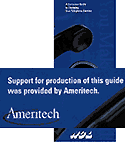It used to be that you could tell where big corporations were coming from because they would speak through aptly named lobbying groups.
But then, about twenty years ago, corporations wised up and realized that no citizen was going to take seriously the proclamations of the Tobacco Institute or the Business Roundtable.
So, big corporations decided to try new ways to delude the public. They set up or helped fund think tanks (American Enterprise Institute, Hudson Institute), they set up front groups (Citizens Against Lawsuit Abuse, Electric Consumers Association), they even funded public interest organizations (World Wildlife Federation, Environmental Defense Fund).
But never has corporate America been so bold as to take over an existing consumer group. Until now.
 The National Consumers League, founded by labor and consumer activists at the turn of the century, calls itself “America’s pioneer consumer advocacy organization.”
The National Consumers League, founded by labor and consumer activists at the turn of the century, calls itself “America’s pioneer consumer advocacy organization.”
While the League does some good work on child labor issues, it has been saturated in recent years with financial contributions from major U.S. corporations to the point where it can no longer be considered a legitimate independent consumer or public interest group.
While refusing to give specific numbers detailing how much money each corporation or industry has contributed, League officials say that 39 percent of the group’s 1997 budget of $1.3 million came from corporations and industry associations.
All indications are that a far greater percentage of the League’s current 1998 budget is flooding in from corporate America. And the League is planning on an unprecedented shakedown of the corporate money tree for its planned 100th anniversary bash next year.
Almost every current project, seminar, brochure, newsletter, and fundraising dinner is sponsored in large part by major corporations or industry associations, with some supplemental money coming in from labor unions.
 For example, this week’s conference, “Focus on Youth: The New Consumer Power,” in Lake Buena Vista, Florida, is sponsored in large part by a coalition of major corporations that traditionally have been hostile to consumer interests, including Visa USA, the Chemical Specialties Manufacturers Association, the Chlorine Chemistry Council, Monsanto, General Motors, Burson-Marsteller, and the National Meat Association.
For example, this week’s conference, “Focus on Youth: The New Consumer Power,” in Lake Buena Vista, Florida, is sponsored in large part by a coalition of major corporations that traditionally have been hostile to consumer interests, including Visa USA, the Chemical Specialties Manufacturers Association, the Chlorine Chemistry Council, Monsanto, General Motors, Burson-Marsteller, and the National Meat Association.
 An April 1997 conference titled “Health Care: How Do Consumers Manage?” was sponsored by major pharmaceutical and health care companies, including Bristol-Myers, Glaxo Wellcome, Pfizer, Wyeth-Ayerst Labs, Kaiser Permanente, Merck, PacifiCare Health Systems, SmithKline Beecham, and Pharmacia & Upjohn. Big labor unions are also listed as contributors to the conference.
An April 1997 conference titled “Health Care: How Do Consumers Manage?” was sponsored by major pharmaceutical and health care companies, including Bristol-Myers, Glaxo Wellcome, Pfizer, Wyeth-Ayerst Labs, Kaiser Permanente, Merck, PacifiCare Health Systems, SmithKline Beecham, and Pharmacia & Upjohn. Big labor unions are also listed as contributors to the conference.
 An Internet Fraud Watch program is being sponsored by MasterCard, NationsBank, MCI, and Bell Atlantic.
An Internet Fraud Watch program is being sponsored by MasterCard, NationsBank, MCI, and Bell Atlantic.
The annual “NCL Trumpeter Award Reception and Dinner” brings in about 40 percent of the League’s annual budget. Last year, the League honored Carol Tucker Foreman, a public relations executive, and Liz Claiborne Inc., a clothing manufacturer that has been tied most recently to sweatshops in China. One of three top contributors to the dinner was Liz Claiborne. The other two were Allstate Insurance and Wyeth-Ayerst, and the next five top contributors were AT&T, Edison Electric Institute, Monsanto, Schering-Plough, and Visa USA. [Coincidentally or not, Liz Claiborne serves as co-chair of the White House sweatshop task force with another co-chair: League executive director Linda Golodner.]
Last March, the League co-sponsored with the Electric Consumers’ Alliance a conference titled “Restructuring of the Electric Industry: What is the Impact?” The Alliance is a front group for the Edison Electric Institute.
The League refused to answer questions about who paid for this conference, or exactly how much money corporations are paying to sponsor the League’s various conferences and programs.
The League’s executive director, Linda Golodner, did not return repeated phones calls over a three-week period seeking comment on this article.
But a walk through the League’s downtown Washington, D.C. office reminds a visitor of the pervasive influence of corporate America over the League’s agenda.
Almost every consumer publication in the League’s front office was paid for by a major corporation or industry group:
 |
 |
 |
The League refused to answer specific questions about how much money corporations are giving to support these various projects, or what percentage of the League’s budget comes from non-corporate funders.
When asked why a consumer group is taking any money at all from corporations that fight consumer interests in Washington, D.C. and around the country, League spokesperson Cleo Manuel said, “I wish we didn’t have to.”
Any consumer group that lives off the Chlorine Chemistry Council, Monsanto, and General Motors should be shunned.
Russell Mokhiber is editor of the Washington, D.C.-based Corporate Crime Reporter. Robert Weissman is editor of the Washington, D.C.-based Multinational Monitor. This article first appeared in their weekly column, Focus on the Corporation, which is available on the Web or via e-mail.
(c) Russell Mokhiber and Robert Weissman







